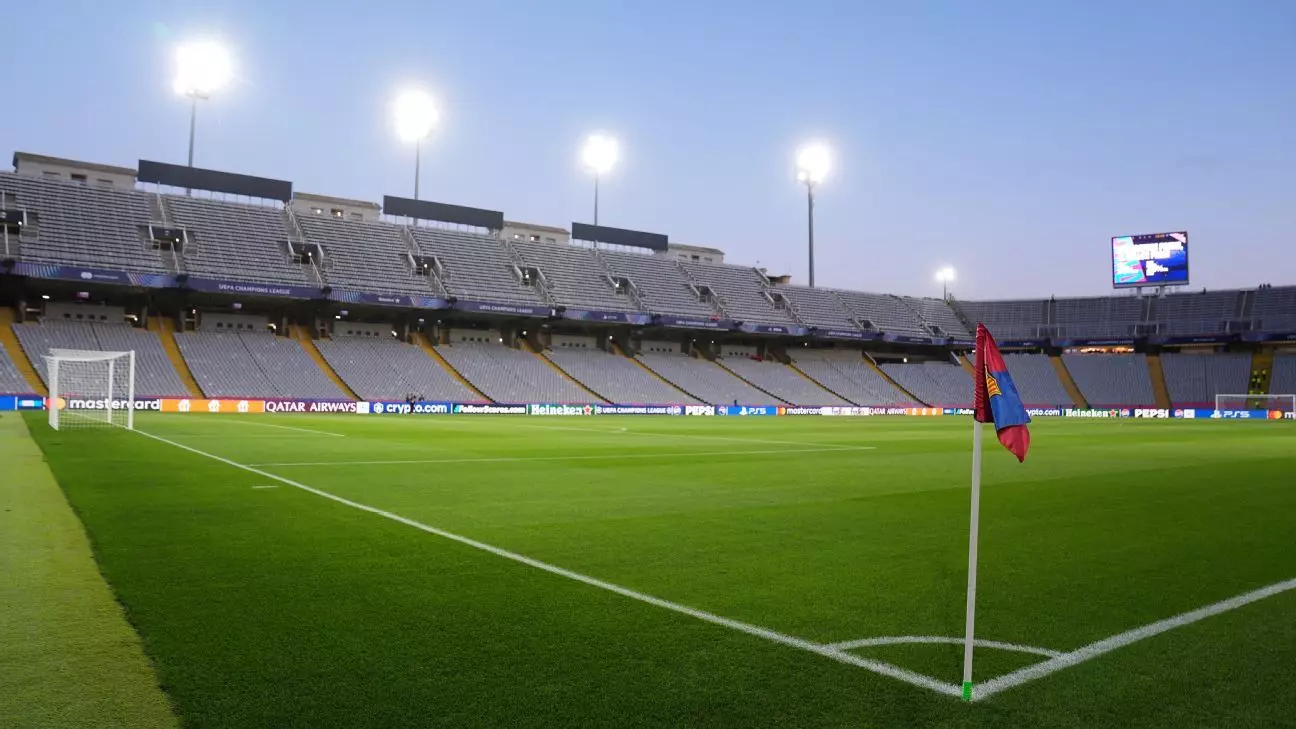FC Barcelona is facing significant challenges this season, both on and off the pitch. A recent decision to close the Espai d’Animació (EDA) section at the Olympic Stadium has stirred controversy and disappointment among its supporters. This action stemmed from a breakdown in communication and fulfilment of financial obligations between the club and the supporters’ groups. Specifically, disputes arose concerning unpaid fines related to the behavior of fans in the designated cheering section of the stadium.
The EDA, where passionate fans gather to rally support for their team, comprises approximately 600 seats behind one of the goals. It’s an essential component of Barcelona’s game day atmosphere, especially as the club plays temporarily at the Olympic Stadium during renovations at Camp Nou. The decision to close this section indefinitely seems drastic and raises questions about the club’s approaches toward managing supporter relationships and their obligations.
Barcelona officials have stated that the supporters’ groups, which were initially bound by agreements to cover fines resulting from previous disciplinary actions, have defaulted on these payments. The outstanding amount reportedly hovers around €21,000 ($22,092). Despite having been granted multiple deadlines to clear this debt, the supporters failed to honor their commitments, leading to the club’s stern response.
Here lies a crucial aspect of this situation: the nature of fan behavior is inherently passionate and, at times, can disrupt the standards enforced by the club. While clubs are responsible for maintaining a safe and respectful environment within their stadiums, the intricate relationship between passionate support and regulatory compliance is delicate. Barcelona’s decision reflects an attempt to enforce this balance, but it may also alienate the very supporters who contribute to the vibrant atmosphere of match days.
Barcelona’s action raises questions about the future of fan engagement in the era of sporting professionalism. Closer inspection reveals the importance of fostering a partnership between clubs and their fan bases. Effective communication and mutual understanding are essential, particularly when financial disputes arise. By closing the EDA, despite the apparent need for discipline, the club risks losing an integral part of its identity—its supporters.
Additionally, this incident casts a spotlight on the financial burdens that modern football clubs face. The significant fines accumulated suggest that these issues may be symptomatic of a larger problem where financial obligations can overshadow the emotional components of sports. As regulations surrounding fan behavior tighten, clubs must find balance by engaging their supporters rather than pushing them away.
As FC Barcelona moves forward, it stands at a crossroads between maintaining regulatory compliance and cultivating a passionate fanbase. The club’s decision to engage with the fans after they fulfill their obligations is a step in the right direction; however, restoring trust will require open dialogue and collaboration.
Ultimately, it is vital for both FC Barcelona and its supporters to navigate this situation carefully. The closure of the EDA may serve as a catalyst for deeper discussions about responsibilities, rights, and the essence of fan culture in modern football. By facing these challenges together, the club can potentially emerge stronger and more united with its supporters in the long run.

